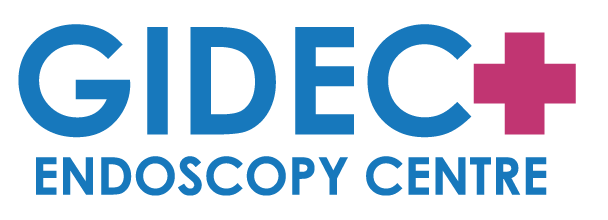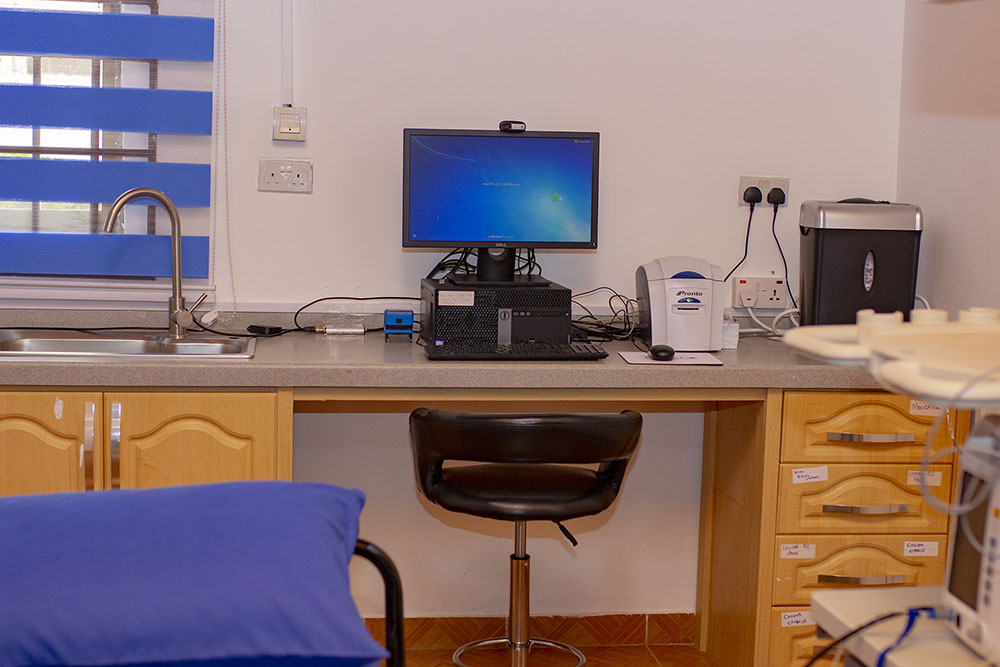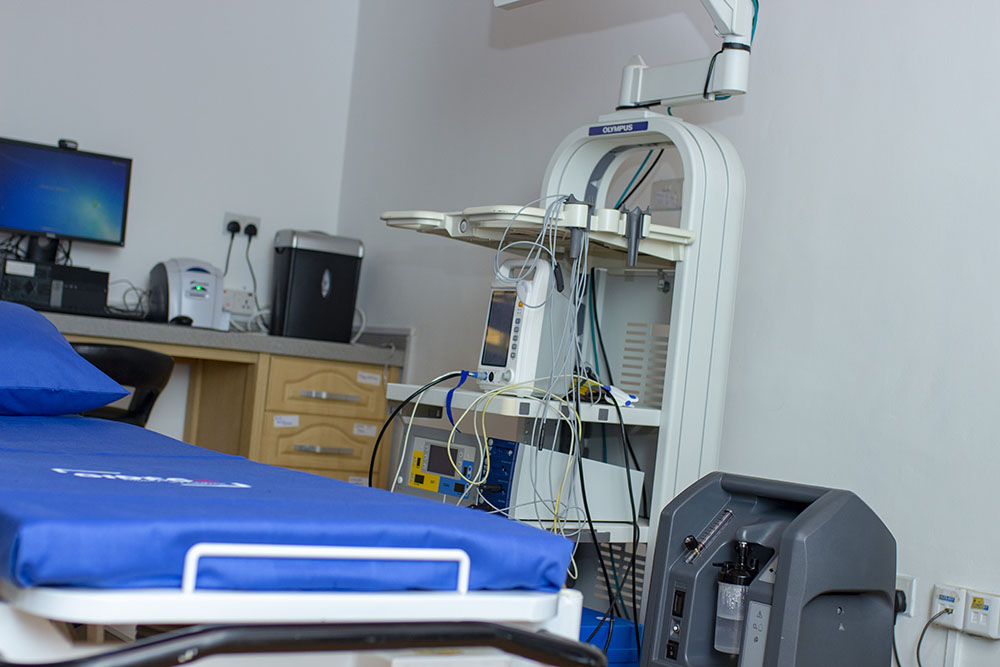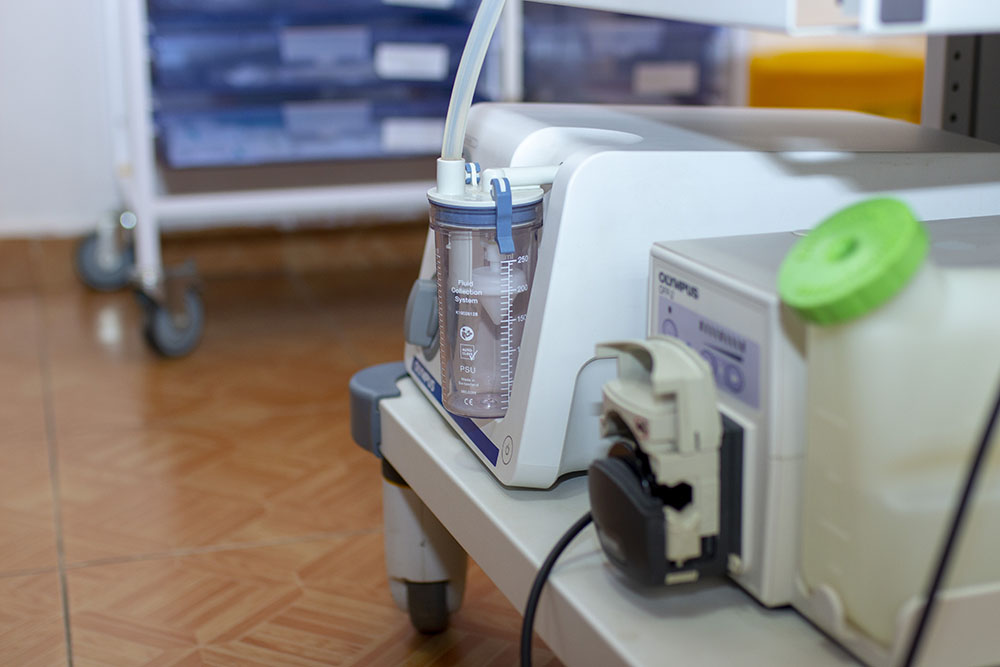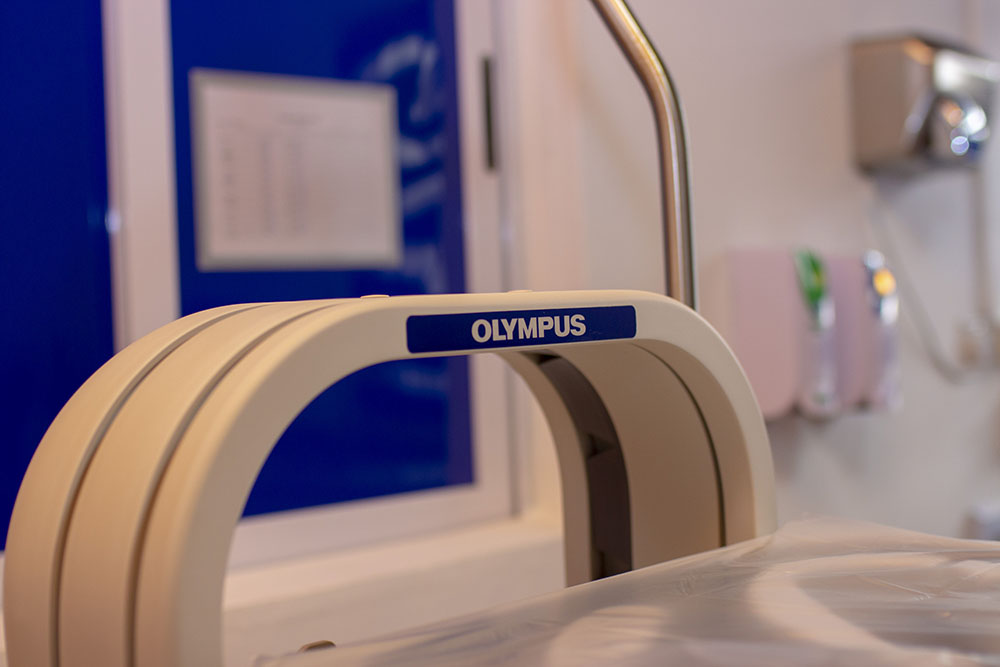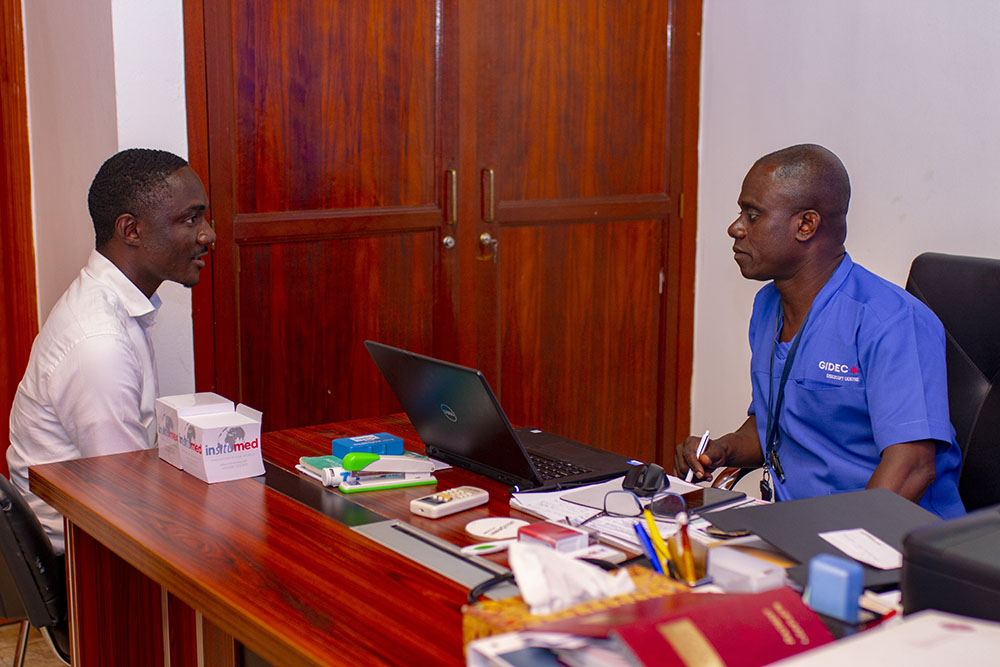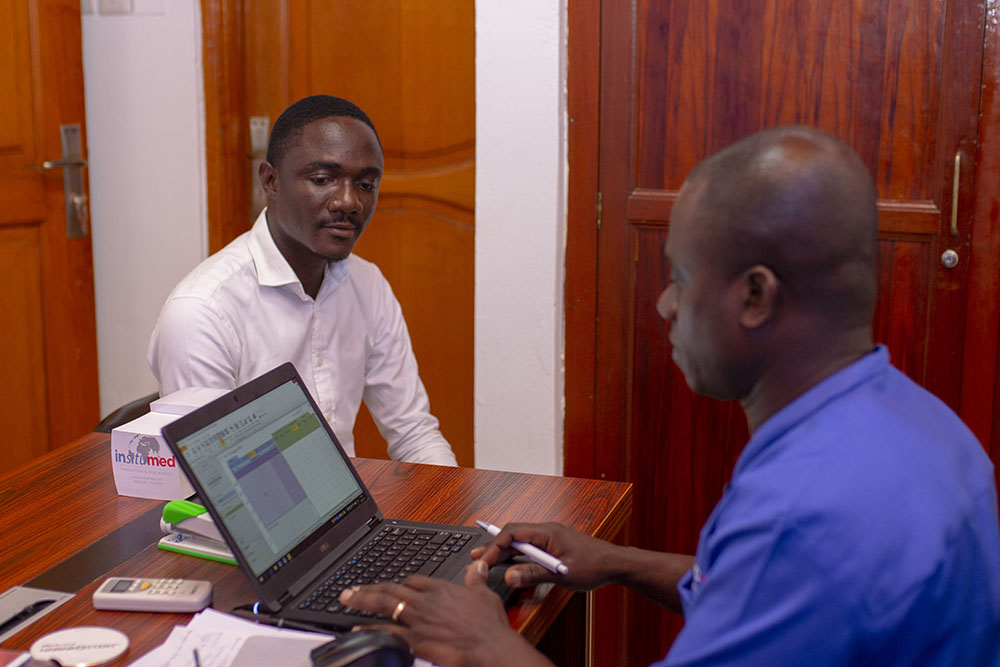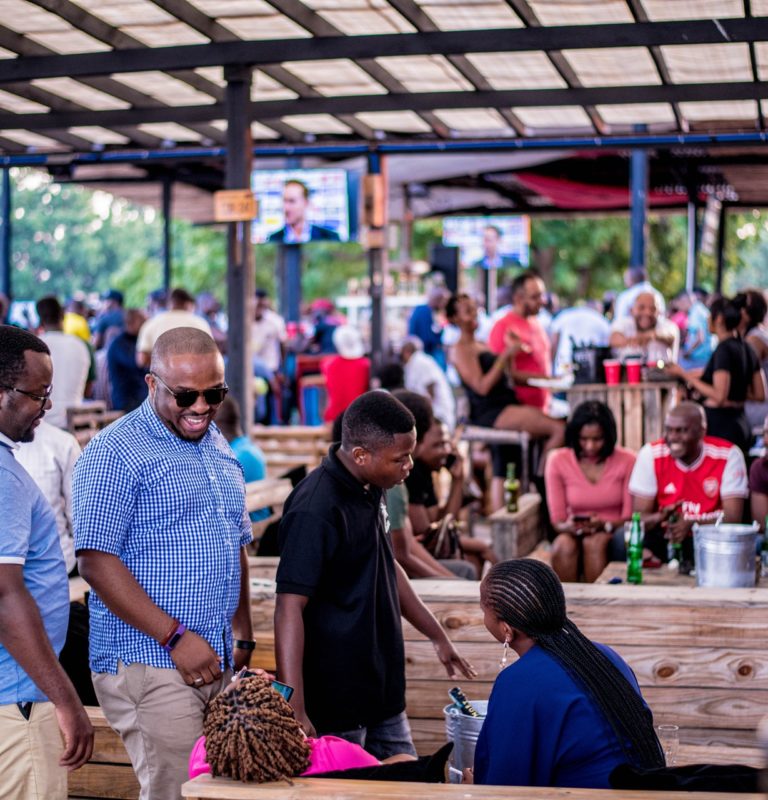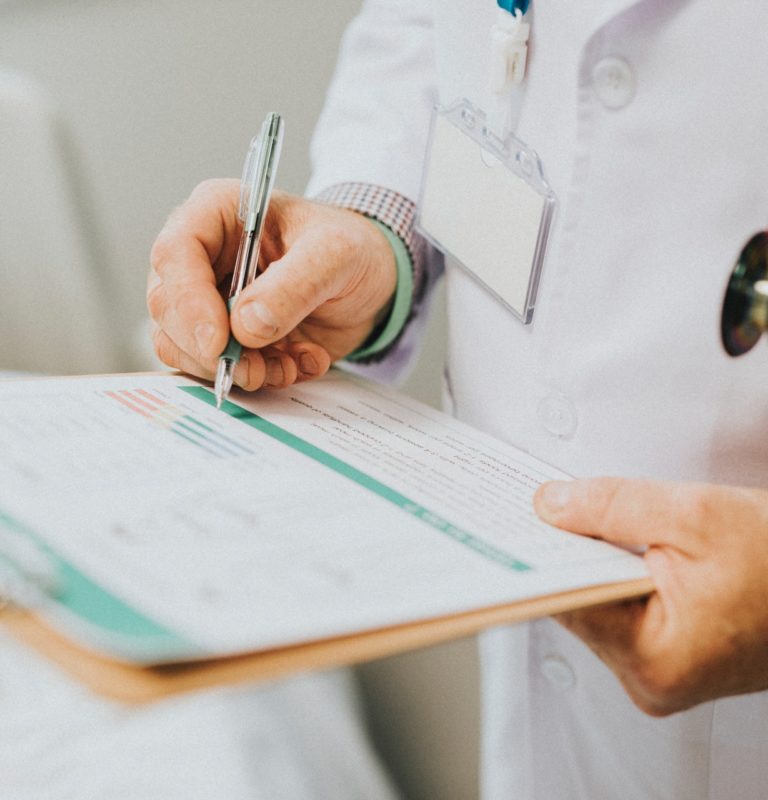What is an Endoscopy?
An endoscopic procedure allows the doctor to visually inspect your gastrointestinal tract using a video camera attached to the end of a long thin flexible tube or endoscope.
Upper gastrointestinal endoscopy also known as OGD or gastroscopy is examination of the oesophagus (food pipe or gullet), stomach and duodenum (first part of the small bowel).
Lower gastrointestinal endoscopy colonoscopy (or flexi sig) is an examination of the colon (large bowel).
Please see patient information leaflet for specific endoscopic procedures.
How do I get referred for Endoscopy?
Your GP (family doctor) or specialist doctor can refer you directly for endoscopy procedure
Alternatively you can refer yourself but you will need a Consultation with one of our specialist Doctors to decide what endoscopy procedure is appropriate for you based on your symptoms
How long do procedures take?
An upper endoscopy takes approximately 10 to 15 minutes. A colonoscopy takes approximately 15 to 30 minutes.
How long will I be there after the procedure?
Patients remain in the recovery area 30 to 40 minutes after their procedure.
Can I eat before my procedure?
It is absolutely essential that we can clearly visualise your intestine when we perform these procedures. Food obscure the views of the lining of your intestine so we will strongly advise that you follow the instructions given to you in the information leaflet provided.
Special advice is given to diabetic patients as detailed in the additional information leaflet on how to manage your diabetes while not eating normally
Can I drink water before my procedure?
This will depend on the type of procedure you are having. For colonoscopy or flexible sigmoidoscopy only, you can drink clear fluid right up to the appointment.
However, if you are having a gastroscopy (either on its own or in the same appointment as a large bowel investigation), then we strongly advised not eating anything for six hours before your appointment, but you may have sips of water up to two hours before
Can I drive myself home or take a taxi?
This will depend whether you had your procedure under conscious sedation.
The medication you receive for conscious sedation during the procedure impairs your judgment, perception and coordination the rest of the day. We strongly advise not to drive or operate any machinery after the procedure.
NOTE: You may take an Uber or taxi home if accompanied by an adult. GIDEC will not perform your procedure under conscious sedation unless transportation arrangements have been made.
If you had your procedure without any conscious sedation you can go home on your own after recovery
Can I take my normal medications?
If you are taking diabetic medications, iron tablets or blood thinning medications like aspirin, clopidogrel (Plavix) or warfarin please refer to the information leaflet provided for advice. If you are not sure we strongly recommend you contact us for advice
Some blood pressure medications are usually held for 72 hours if you are coming for colonoscopy, please contact us for advice
You are encouraged to take your other medications but take them an hour before taking the bowel preparation. Be aware that, because of the diarrhoea, any medications you take may pass through your system more quickly than usual.
Aspirin and aspirin products are blood thinners. Because biopsies and/or polypectomies may be done during your procedure, these products should be avoided for several days before your procedure and several days after. Your doctor will instruct you on whether you should stop aspirin as well as the number of days you should refrain from taking any aspirin products. If you take Coumadin containing medicines including warfarin please discuss any dosage adjustment with your doctor.
What can I mix with the bowel preparation to make it taste better?
The bowel preparation can be mixed with light-coloured squash or clear apple juice. You could also try chilling it or drinking the liquid through a straw. Do not add any liquid that can potentially stain the bowel.
Will I be sleeping during my procedure?
You may receive anesthesia referred to as “conscious sedation.” A combination of drugs to make you feel relaxed and very comfortable are administered through an I.V. (intravenous line). It is referred to as a conscious sedation because although you may be able to respond if spoken to, you may be asleep.
Will I have pain following the procedure?
You should have little or no pain following your procedure. If you have an upper endoscopy, you may have a slight sore throat that can be relieved with warm liquids, throat lozenges or, if necessary, paracetamol.
If you have a colonoscopy, you may experience some cramping, gas or a sore rectum. Warm liquids and moving around will help the cramps and gas to pass. Vaseline jelly and paracetamol will help with any rectal discomfort.
If you have redness or swelling at the I.V. site, moist warm soaks will relieve the swelling. If it does not, notify your doctor.
May I have visitors?
Because of space limitations and your length of stay, we recommend that children, especially those under the age of 15, do not accompany you to the center.
Can my family or friends stay with me?
Accompanying friends and family are welcome to wait in reception until you are called through for your procedure.
Due to patient confidentiality and also to protect the dignity and privacy of other patients we do not allow family and friends into the procedure room or in the recovery area unless in selected exceptional circumstances.
When your procedure is finished, your accompanying family member or friend will be called to be collecting you.
Can I have alcohol?
Alcoholic beverages will add to the effect of the medications you will receive during your procedure. Because alcohol is a drug, mixing drugs of any kind is not advised.
How do I get results?
After the procedure you will have the opportunity to meet and discuss the result with your Consultant. You will be offered a copy of the endoscopy report on discharge. We will also send a copy to the doctor who referred you. We will also give you an aftercare leaflet containing details of any further investigations that may be required or where and when results can be obtained for any samples taken.
Helicobacter tests (Clo test) to check for bacterial infection in your stomach should be available before you are discharged.
Other samples including histology from biopsy and polyps could take between 2-4 weeks; we will alert you when they are ready
Does your center accept NHIS cards?
We currently do not accept NHIS cards but we hope to review at some stage in the future.
Which private insurance scheme do you accept?
We accept international and local insurance patients including BUPA, AXA, and CIGNA etc.
You can book an endoscopy appointment. Call any of the numbers below and a dedicated specialist will be at your service.
